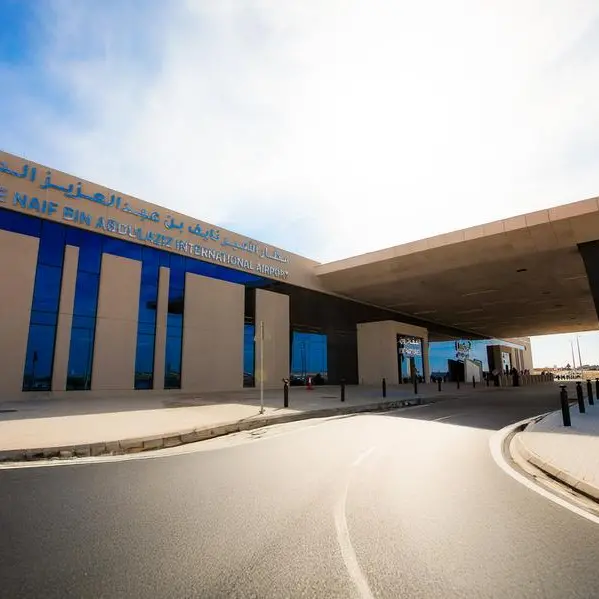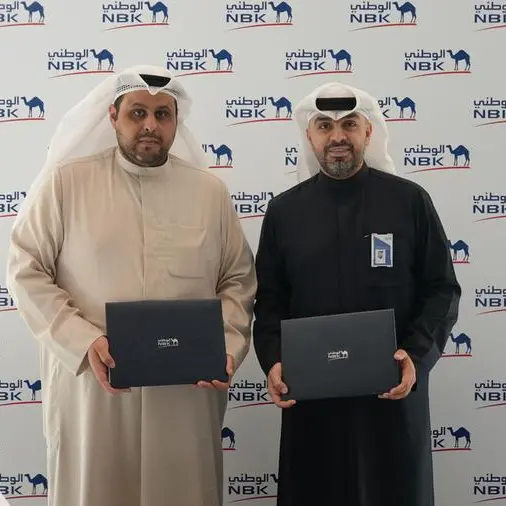- US$5 million SME credit line and US$1 million trade facilityto The National Bank
- Capacitybuilding for SMElending and international tradefacilitationto TNB in the West Bank and Gaza
- New EBRD investment to strengthenbanking and privatesectors
Strengthening small and medium-sized enterprises (SMEs) and promoting international trade in West Bank and Gaza, the EBRD is providing an SME credit line of US$5 million to The National Bank (TNB), in addition to aUS$1 million trade facility under the EBRD’s Trade Facilitation Programme (TFP).
The ceremony took place at the Palestine Monetary Authority (PMA) in Ramallah in the presence of the PMA Governor, Azzam Shawwa, and TNB Chairman, TalalNasereddin. The agreement was signed by EBRD Directorfor the Eastern Mediterranean region, Heike Harmgart and the General Manager of TNB, Ahmad Hajhasan.
The private sector represents a substantial segment of the local economy.This new EBRD investmentis the third in the West Bank and Gaza and will contribute to the creation of more jobs as well as the development of the private sector.
PMA Governor Azzam Shawwa praised the signing of the agreement noting its importance for the needs of the local economy and supporting the SME sector, which represents more than 95 per cent of the Palestinian economy. “The agreement will help achieve sustainability in this sector, create more job opportunities, accelerate the development process, and enhance financial inclusion in Palestine,” he said.
"By creating a US$1 million trade facility, the agreement will help open new markets for national projects, contributing to the activation of the Palestinian economy. We thank EBRD for its initiatives to increase its investments in Palestine and its continuous efforts to support the banking sector and the Palestinian economy in general," he added.
TalalNasereddin, TNB Chairman, also expressed his enthusiasmabout this joint agreement with the EBRD as it will increase the lending portfolio for SMEs which represents 95 per cent of the Palestinian economy. This emphasisethat SMEsare one of the most important cornerstoneson whichthe Palestinian economy relies. Mr Nasereddin said that this collaboration will support economic growth of the national economy and the creation of new job opportunities as well as contribute to enhancing financial inclusion and allowing for more entrepreneurial projects to be developed.
Heike Harmgart said: “We are very pleased to be launching our third investment in the West Bank and Gaza and our second supporting the Palestinian banking sector. This investment with TNB is crucial in increasing access to finance for SMEs in all economic sectors as well as supporting trade finance activities for local companies.”
Under the trade facility, TNB will become an issuing bank and receive the EBRD’s trade finance guarantees to support the import and export activities of local companies. The EBRD expects the participation of local companies from a wide spectrum of sectors such as manufacturing, agribusiness, infrastructure as well as other segments of the local economy.
A technical assistance package, financed by the EBRD’s West Bank and Gaza Trust Fund, will help strengthen TNB’sSME lending policies and alsooffer advanced trade finance training courses.
Launched in 1999, the EBRD’s TFP aims to promote foreign trade among the economies in which the Bank invests, by providing guarantees to international confirming banks and short-term loans to selected banks and factoring companies for on-lending to local exporters, importers and distributors.
The TFP currently includes over 100 partner banks in 29countries, with limits exceeding €1.5 billion in total and more than 800 confirming banks worldwide.
In 2017 the EBRD Board of Governors approved the engagement of the Bank in the West Bank and Gaza.To date, two projects have been signed which include an SME credit line to Cairo Amman Bank Palestine for €4.1 million and a €2.0 million loan to Medlabs Consultancy Group to expand its operations in the West Bank by opening 10 branches, offering better medical services to the local population.
The National Bank (TNB) is the fastest growing Palestinian bank and the second largest banking group providing comprehensive, integrated financial services for the corporate, retail, investment and microfinance sectors. With over 9,000 shareholders, TNB commands the largest shareholder base within the Palestinian banking sector with many respected and successful companies on its board. In 2015, TNB acquired Jordan’s Bank al Etihad’s operations in Palestine and in 2018 led a consortium acquiring a majority stake in Palestine Islamic Bank (PIB). For more information, please visit www.tnb.ps .
-Ends-
© Press Release 2018Disclaimer: The contents of this press release was provided from an external third party provider. This website is not responsible for, and does not control, such external content. This content is provided on an “as is” and “as available” basis and has not been edited in any way. Neither this website nor our affiliates guarantee the accuracy of or endorse the views or opinions expressed in this press release.
The press release is provided for informational purposes only. The content does not provide tax, legal or investment advice or opinion regarding the suitability, value or profitability of any particular security, portfolio or investment strategy. Neither this website nor our affiliates shall be liable for any errors or inaccuracies in the content, or for any actions taken by you in reliance thereon. You expressly agree that your use of the information within this article is at your sole risk.
To the fullest extent permitted by applicable law, this website, its parent company, its subsidiaries, its affiliates and the respective shareholders, directors, officers, employees, agents, advertisers, content providers and licensors will not be liable (jointly or severally) to you for any direct, indirect, consequential, special, incidental, punitive or exemplary damages, including without limitation, lost profits, lost savings and lost revenues, whether in negligence, tort, contract or any other theory of liability, even if the parties have been advised of the possibility or could have foreseen any such damages.



















